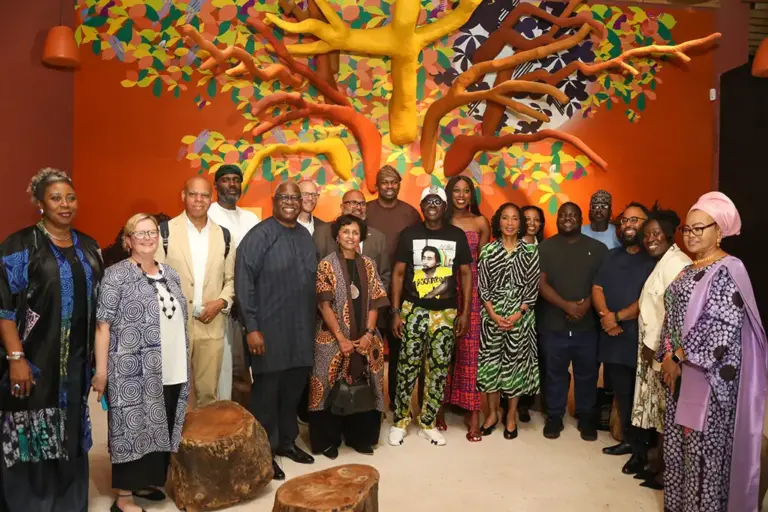Across Nigeria’s dynamic markets, a unique form of innovation thrives—constraint-driven innovation. Unlike Silicon Valley start-ups, which benefit from abundant capital and infrastructure, Nigerian entrepreneurs have learned to transform obstacles into competitive advantages.
Take Blessing, for instance, who launched a design studio in Lagos. Faced with unreliable electricity, she didn’t just buy a generator or wait for better infrastructure. Instead, she restructured her business model, creating a distributed team where designers in different neighborhoods collaborated based on power availability. What started as a survival tactic evolved into a scalable advantage, enabling her business to expand across three countries while competitors remained stuck in a single location.
This phenomenon is not an exception—it’s a pattern.
The Constraint Paradox: How Limitations Fuel Creativity
Conventional wisdom suggests that constraints hinder creativity. Nigeria proves otherwise.
In a study of 50 business owners across Lagos, Abuja, and Port Harcourt, 78% reported that their most successful innovations emerged from severe limitations, not from abundance.
For example, Foodlocker, a startup in Ibadan, faced cold-chain logistics challenges. Instead of just fixing the refrigeration issue, they redesigned the farm-to-table system with a predictive inventory model, reducing food waste in ways their well-funded competitors couldn’t match.
As one entrepreneur put it:
“Abundance makes you lazy. When everything works, you build ordinary things. When nothing works, you’re forced to imagine extraordinary solutions.”
This is not about romanticizing hardship but recognizing that Nigerian entrepreneurs have developed a unique adaptive intelligence that businesses in structured economies often struggle to replicate.
Three Patterns of Constraint-Driven Innovation
Through studying numerous Nigerian business successes, three distinct strategies stand out:
1. The Leapfrog Effect
When traditional infrastructure fails, Nigerian businesses don’t waste time fixing outdated systems. They jump ahead.
-
While American retailers spent decades refining shopping malls, Nigerian commerce skipped that phase, moving directly to digital marketplaces that blend social commerce, flexible payments, and innovative logistics.
-
Paystack didn’t just improve online payments; they reinvented financial architecture to address multiple system failures at once.
2. The Simplicity Premium
Nigerian entrepreneurs strip solutions to their essential elements. Not because they lack resources, but because complexity creates too many failure points in an unpredictable environment.
-
When Flutterwave built its payment system, it wasn’t designed for constant connectivity—it was optimized to function even with unstable internet.
-
As one entrepreneur noted:
“The Western model adds features until something breaks; the Nigerian model removes elements until nothing can break.”
3. The Trust Architecture
In a country where institutional trust is weak, Nigerian businesses create alternative verification systems.
-
MAX.ng, a ride-hailing platform, didn’t just build an app. They integrated community-based identity verification, ensuring security where official systems fell short.
-
Nigerian fintechs use alternative credit scoring, such as phone usage patterns, to assess loan eligibility without traditional banking records.
From Local Ingenuity to Global Advantage
Constraint-driven innovations don’t just work in Nigeria—they give businesses a competitive edge globally.
-
Andela, originally designed to train remote developers due to education limitations, became a global leader in remote work solutions when the world went digital during the pandemic.
-
OPay’s super app model, built to maximize limited smartphone storage and data, is now influencing big tech companies looking for streamlined digital experiences.
Why the World Is Taking Notice
The global business world underestimates constraint-driven innovation because it’s conditioned to equate success with unlimited funding and resources. However, forward-thinking companies are paying attention.
When Microsoft launched its Africa Development Centre in Lagos, its engineering lead, Gafar Lawal, emphasized that their goal was not just to bring American models to Africa—but to learn from Nigerian entrepreneurs.
As businesses worldwide face increasing economic uncertainty, they could learn from Nigeria’s playbook—adapt, simplify, and innovate under constraints.
Next time you face a business challenge, ask yourself:
What would a Nigerian entrepreneur do?
The answer might not just be a workaround—it could be your next breakthrough.

